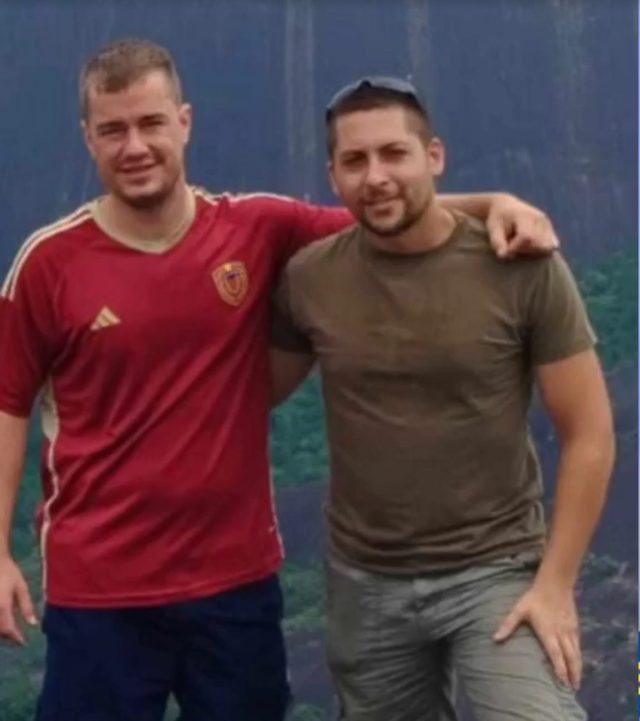
On September 9, the families of José María Basoa Valdovinos, 35, and Andrés Martínez Adasme, 32, reported their respective disappearances after losing contact with them since September 2.
These two Spanish citizens have been detained in Venezuela, where the Maduro government has labeled them as “terrorists.”
The detention, confirmed by the Basque Government’s Security Department, is justified by Venezuelan authorities, who allege that both men were involved in a supposed operation aimed at carrying out “terrorist” acts, including an alleged assassination attempt on President Nicolás Maduro, whose presidency is disputed after the election results of July 28.
The accusations claim that the Spaniards might have “ties” to Spain’s National Intelligence Center (CNI), a claim the Spanish government has categorically denied.
The two men traveled from Madrid to Caracas on August 17. Upon arriving in the Venezuelan capital, they rented a vehicle to head towards the Amazonian region, not far from the border between Colombia and Venezuela.
A few days later, on August 31, they supposedly departed from Puerto Ayacucho (Venezuela) by boat en route to Colombia. They were traveling without a guide, and there had been no updates from them since their last phone connection.
By that point, they should have already boarded a flight back to Madrid.
Local media reported that two young men from Bilbao had been arrested after supposedly being found in a restricted military area.
According to Maduro’s authorities, they were seen exhibiting “suspicious behaviors,” and during their interrogation, both displayed a “nervous attitude.”
Following their arrest, Nicolás Maduro launched a campaign against Spain and the detained individuals. In this case, the Venezuelan dictator has found the Basque men’s situation to be a convenient excuse to attack them and the Spanish government, who had granted political asylum to Venezuelan presidential candidate Edmundo González, just days before the detention of Basoa and Martínez.
The Spanish Parliament and the EU Parliament have recognised González Urrutia as the legitimate President of Venezuela.
Maduro employed the media to unfoundedly label the detainees as “terrorists” and claimed, without any supporting evidence, that they were part of a destabilizing operation against his regime. His paranoid assault did not end there, as he also targeted the “dominant hegemonic right-wing Spanish media,” accusing them of a “defensive” reaction to the arrests.
In classic dictatorial fashion, Maduro is seeking to sway public opinion by asserting that the Spanish media “were already prepared to present their narrative because they have a narrative to conspire. When they fail, they create a narrative to victimize the murderers, the terrorists.”
He added with irony, “Now it turns out that they were good young men, tourists, who were just wandering around and were captured by the Venezuelan dictatorship and disappeared.”
The attacks on Spain and its institutions continued, with another high-ranking official from the Venezuelan regime commenting on the issue.
Diosdado Cabello, the Interior Minister of Venezuela, claimed that the CNI, although part of Spain’s Ministry of Defense, operates as a “completely autonomous entity” that “carries out operations worldwide following instructions from the CIA.”
As for the current situation of José María Basoa Valdovinos and Andrés Martínez Adasme, Marsiol Garmendia, the Spanish government’s delegate in the Basque Country, stated that there are “no significant updates” and emphasized that this is “a matter of vital importance and significance.”
Furthermore, Garmendia warned that “all caution is necessary to ensure these Spanish citizens can return home as soon as possible.” Both she and Basque refional President Imanol Pradales confirmed they are in contact with the families, who, “as is understandable,” are deeply concerned about the situation.
The case of the two Spaniards serves as a reminder of the increasingly strained relations between Venezuela and Spain, highlighting the political tensions that often lead to the misuse of accusations.
While the Venezuelan government continues its narrative of conspiracy, the families and representatives of José and Andrés demand transparency and justice.



 Subscribe
Subscribe